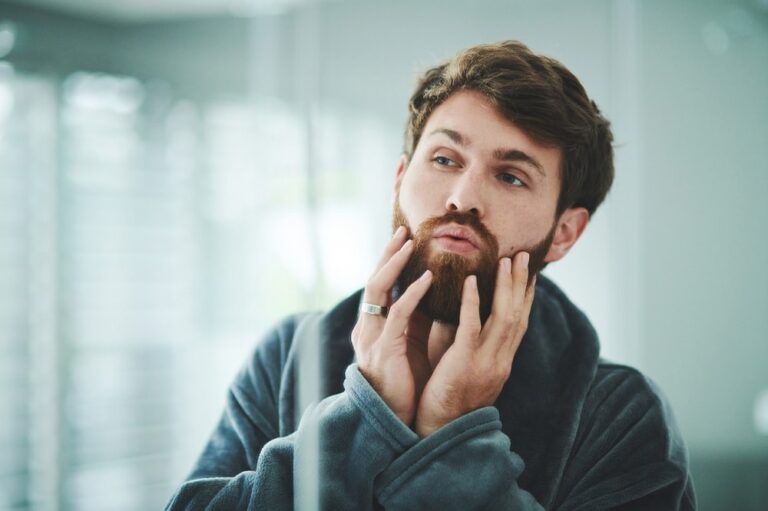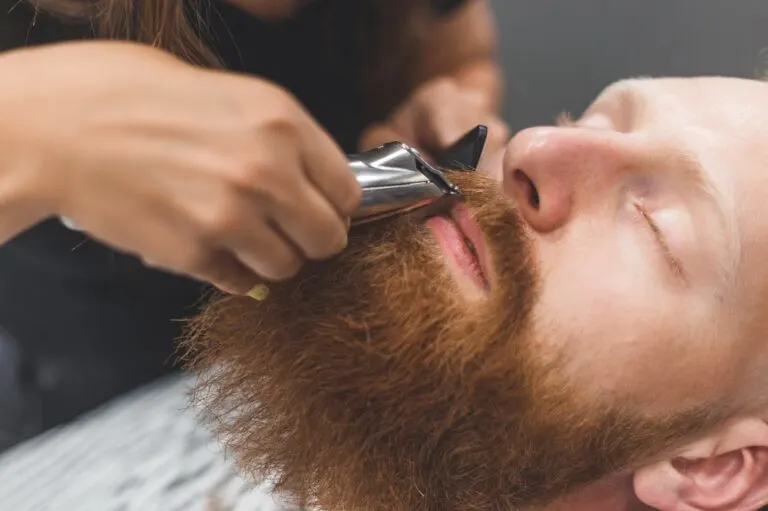How to Darken Your Beard: DIY Home Remedies
Rocking a beard is undeniably cool. Imagine taking it to the next level with a darker, bolder look! If you are searching for a natural way to darken your beard, this blog post is for you.
If your facial hair decided to rebel against you and start growing in a lighter shade that just doesn’t do you justice. Probably you have also tried proper beard grooming routines, but nothing seems to make a difference.
Now you want a solution that’s natural, effective, and doesn’t break the bank. So, you’re setting out on an epic quest to darken your beard naturally.
Buckle up cause I’m about to spill the tea on the secrets of darkening beard naturally – a journey filled with trial and error and a whole lot of caffeine (more on that later).
Factors That Affect Beard Color

Melanin, a pigment produced by cells called melanocytes, is responsible for the color of your facial and scalp hair. There are two types of melanin: eumelanin and pheomelanin.
The specific combination and amount of eumelanin and pheomelanin pigments determine the color of your beard. Eumelanin is responsible for black and brown hair, while pheomelanin imparts a red beard or yellow hue.
So, higher levels of eumelanin contribute to darker beard colors. For instance, the reduction in eumelanin production as we age leads to gray or white hair. The combination of these two can be influenced by the following factors:
- Genetics affect beard color, thickness, and texture.
- Hormones like testosterone and DHT influence color and growth.
- Aging leads to decreased eumelanin, causing lighter or graying beard color.
- Vitamins and minerals impact color and health.
- Sun exposure can lighten beard color due to UV ray bleaching.
- Lifestyle factors, such as smoking, stress, and lack of sleep can change the melanin production ratio.
- Over-styling beard with heat tools.
While some of these factors may be beyond your control, you can still take steps to darken your beard using natural methods.
Natural Methods to Darken Your Beard
Natural methods are safer and cost-effective for darkening your beard. But it takes a lot of patience and dedication. Here are some DIY home remedies for darkening your beard.
1. Coffee or Black Tea
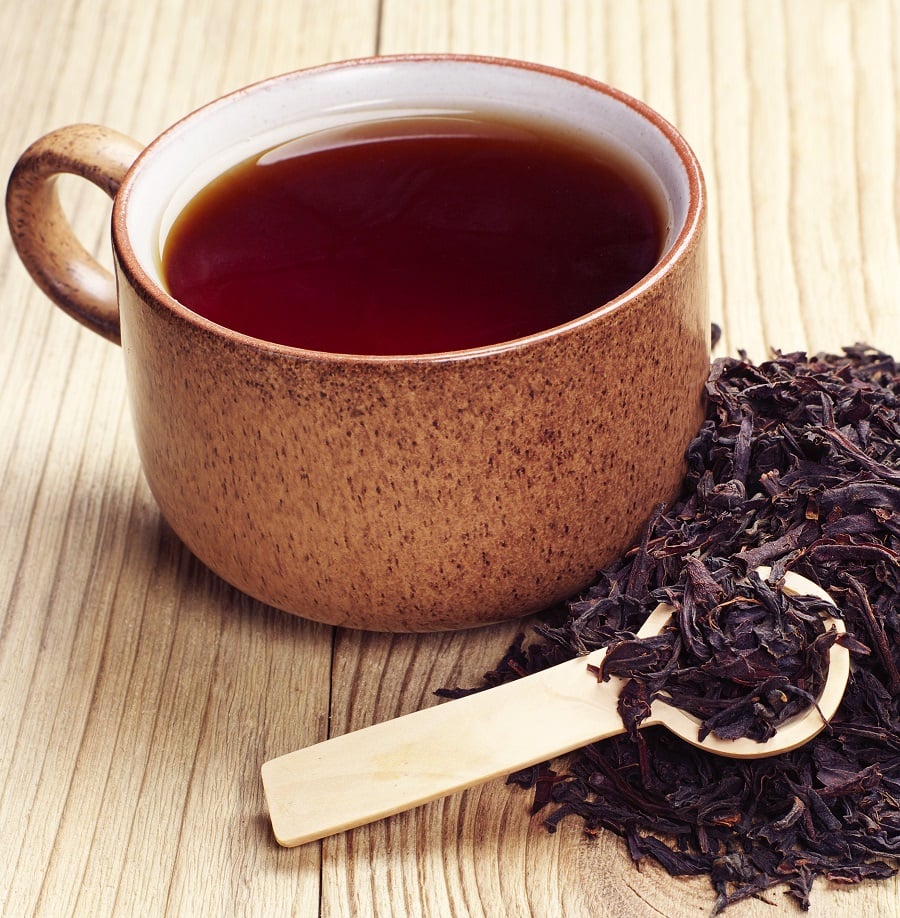
Coffee and black tea are rich in natural pigments that can help darken your beard. Simply brew a strong cup of coffee or black tea, let it cool, and apply it to your beard using a brush or cotton ball. Leave it on for 30-60 minutes, then rinse it off. Repeat this process every few days until you achieve your desired color.
- Brew a strong cup of coffee or black tea using dark roast beans for the best results.
- Allow it to cool to room temperature.
- Wash and dry your beard before applying the tea or coffee.
- Pour the cooled coffee over your beard, making sure to saturate all the hairs. Do this in your washroom else your bed might get stained.
- Use a comb or your fingers to evenly distribute the coffee throughout your beard.
- Allow the coffee to sit on your beard for 20-30 minutes. The longer you leave it on, the darker the color may become.
- Rinse your beard with water to remove the coffee. Optionally, you can use mild beard wash to wash out the coffee if you find the smell too strong.
- Repeat this process a few times if necessary to achieve the desired color.
2. Henna and Indigo
A natural plant dye can be combined with indigo to create a dark brown or black color. Mix equal parts of henna and indigo powder with water to create a thick paste. Apply the paste to your beard, and let it sit for 1-2 hours. Rinse it off with water, and repeat the process every 2-4 weeks to maintain the color.
- Purchase natural henna and indigo powder from a reputable source to ensure they are free from chemicals.
- In a non-metallic bowl, mix equal parts of henna and indigo powder with enough water to form a thick paste. The consistency should be similar to yogurt.
- Allow the mixture to sit for about 15-30 minutes for the dye to release.
- Apply the paste to your clean, dry beard using gloves or an applicator brush, ensuring that all hairs are evenly coated.
- Cover your beard with plastic wrap or a shower cap to keep the mixture moist and prevent staining on your skin or clothes.
- Let the paste sit on your beard for 1-2 hours, depending on the desired color intensity.
- Rinse your beard thoroughly with water to remove the paste. Avoid using shampoo for at least 24 hours to allow the color to set.
3. Sage and Rosemary
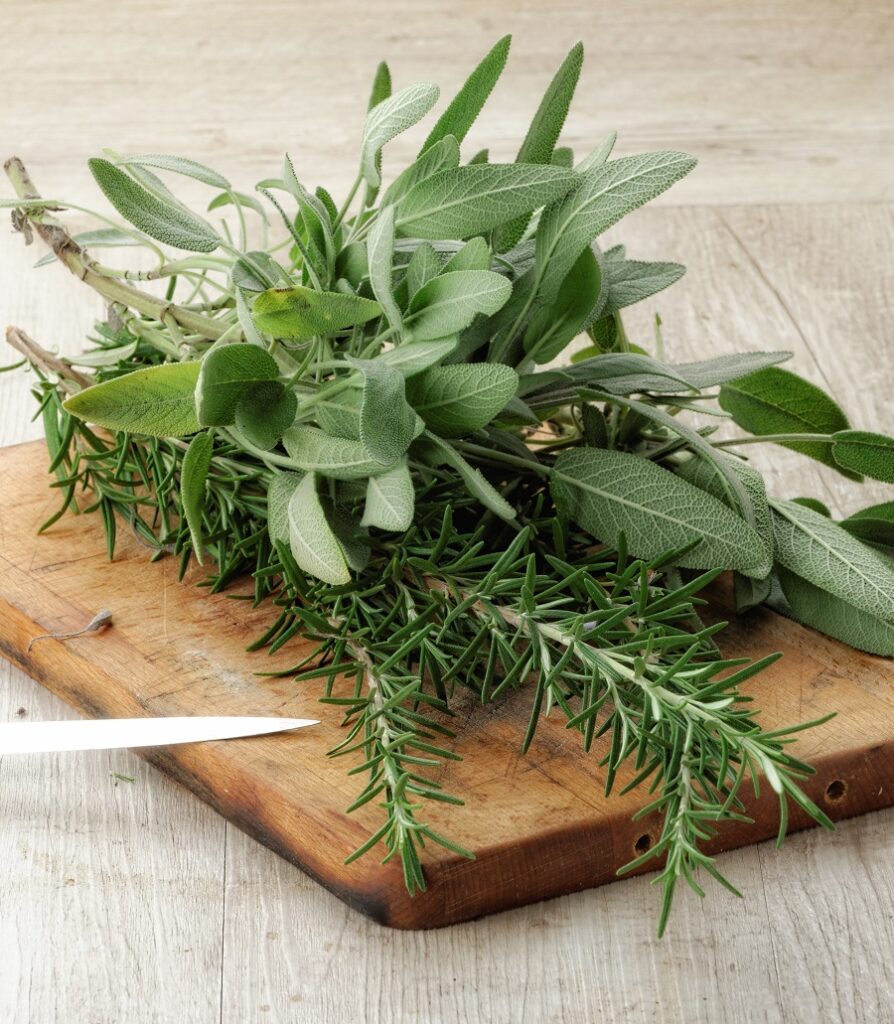
Sage and rosemary are natural herbs known for their hair-darkening properties. Here’s how to use them to darken your beard:
- Combine equal parts dried sage and rosemary leaves. You’ll need about 1/4 cup of each herb for a medium-sized beard.
- Boil 2 cups of water and add the dried herbs to it. Let them simmer for about 30 minutes.
- Remove the mixture from the heat and let it steep for an additional 30 minutes to an hour. The longer it steeps, the stronger the infusion will be.
- Strain the liquid to remove the herbs and let the infusion cool to room temperature.
- Clean and dry your beard before applying the sage and rosemary infusion.
- Apply it to your beard. Use a comb or your fingers to distribute the infusion evenly throughout your beard.
- Leave the infusion on your beard for 20-30 minutes, depending on the desired color intensity.
- Rinse your beard with water to remove the infusion. You may use a mild shampoo to wash out the mixture if necessary.
- Repeat this process once or twice a week to achieve and maintain the desired color.
4. Indian Gooseberry and False Daisy (Amla and Bhringraj)
Ayurvedic herbs are known for their hair-darkening properties. Mix equal parts of Indian gooseberry and false daisy powder with water to form a paste. Apply the paste to your beard, and let it sit for 30-45 minutes. Rinse it off with water, and repeat the process weekly to maintain a darker beard.
- Purchase natural amla and bhringraj powder from a reputable source to ensure they are free from chemicals.
- In a non-metallic bowl, mix equal parts amla and bhringraj powder with enough water to form a thick paste. The consistency should be similar to yogurt.
- Optionally, you can add a few drops of almond or coconut oil to the mixture for added nourishment.
- Apply the paste to your clean, dry beard using gloves or an applicator brush, making sure all hairs are evenly coated.
- Let the paste sit on your beard for 30-45 minutes.
- Rinse your beard thoroughly with water to remove the paste. Avoid using shampoo for at least 24 hours to allow the color to set.
- Repeat this process weekly for best results and to maintain the desired color.
5. Natural Habits
These methods focus on lifestyle changes and practices that can help improve the overall health and pigmentation of your beard. Examples include:
- Consuming a well-balanced diet rich in vitamins and minerals that promote hair growth and pigmentation.
- Limiting sun exposure and using beard care products with sun protection to prevent UV-induced lightening of your beard.
- Reducing stress, quitting smoking, and getting adequate sleep to improve the overall health of your beard, including its color.
- Using gentle, natural beard care products and maintaining a regular grooming routine to keep your beard looking its best and preserve its natural color.
6. Foods that Can Darken Your Beard
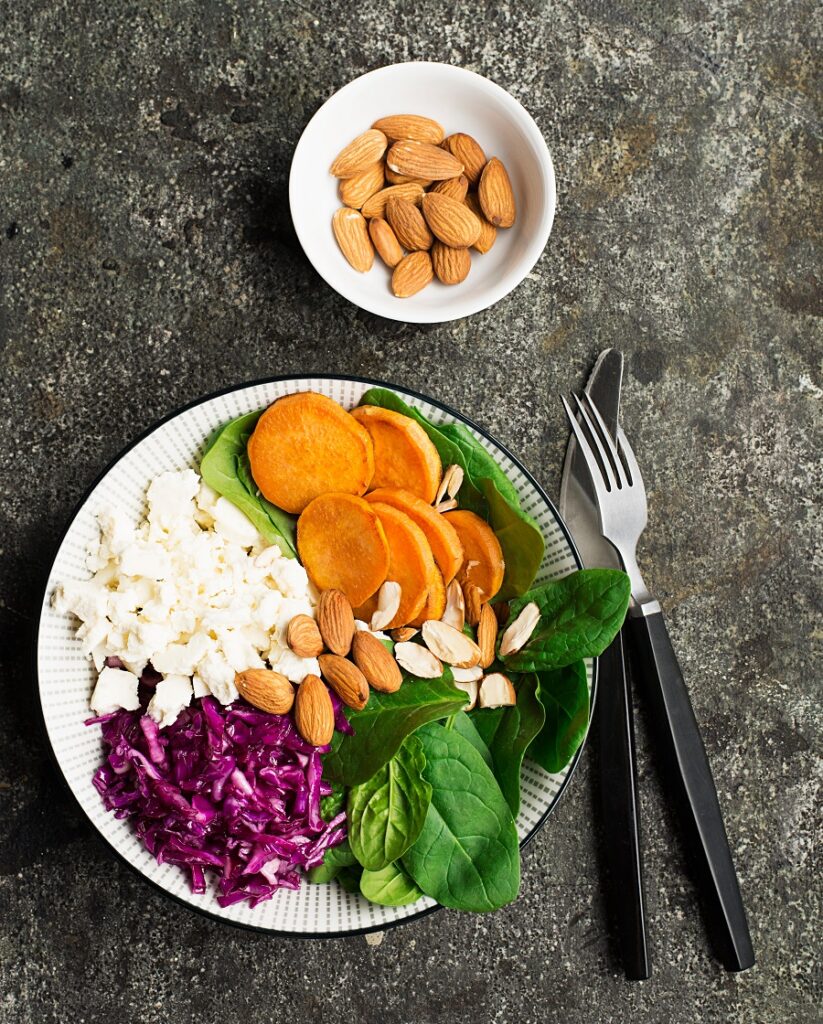
There are several foods that can help promote hair pigmentation and potentially darken your beard. Including these foods in your diet can contribute to better overall beard health and color:
- Spinach: Rich in vitamins A, C, and E, spinach helps in the production of sebum, a natural oil that keeps your beard moisturized and healthy.
- Sweet Potatoes: High in beta-carotene, which your body converts to vitamin A, sweet potatoes help improve hair pigmentation and promote a healthy scalp.
- Almonds: These nuts are a great source of biotin, which is essential for hair growth and pigmentation. They are also rich in vitamin E, which can protect your beard from sun damage.
- Oysters: Oysters are a great source of zinc, a mineral that helps maintain hair color and prevent graying.
- Bell Peppers: Rich in vitamin C, bell peppers promote collagen production, which is essential for hair health and pigmentation.
- Carrots: Another excellent source of beta-carotene, carrots can help improve hair pigmentation and contribute to a healthy scalp.
- Eggs: Eggs are a good source of biotin, protein, and vitamin D, which can contribute to better hair health and pigmentation.
- Avocados: High in healthy fats, avocados can help keep your beard moisturized and nourished, promoting better pigmentation and growth.
- Lentils: Packed with protein, iron, and biotin, lentils can help improve hair health, pigmentation, and growth.
- Salmon: Rich in omega-3 fatty acids, salmon promotes hair health and pigmentation by reducing inflammation and nourishing hair follicles.
Tips to Maintain a Darker Beard
Staying hydrated is essential for overall health, including the health of your beard. Drinking enough water helps maintain the moisture balance of your skin and hair, promoting a healthy, dark beard.
Using a high-quality, natural beard oil or balm containing essential oils like black seed oil, castor oil, and eucalyptus oil can help darken your beard. These oils not only provide essential nutrients to your beard but also promote melanin production. Apply the oil or balm daily to keep your beard healthy and dark.
Non-Natural Methods of Darkening Beard:
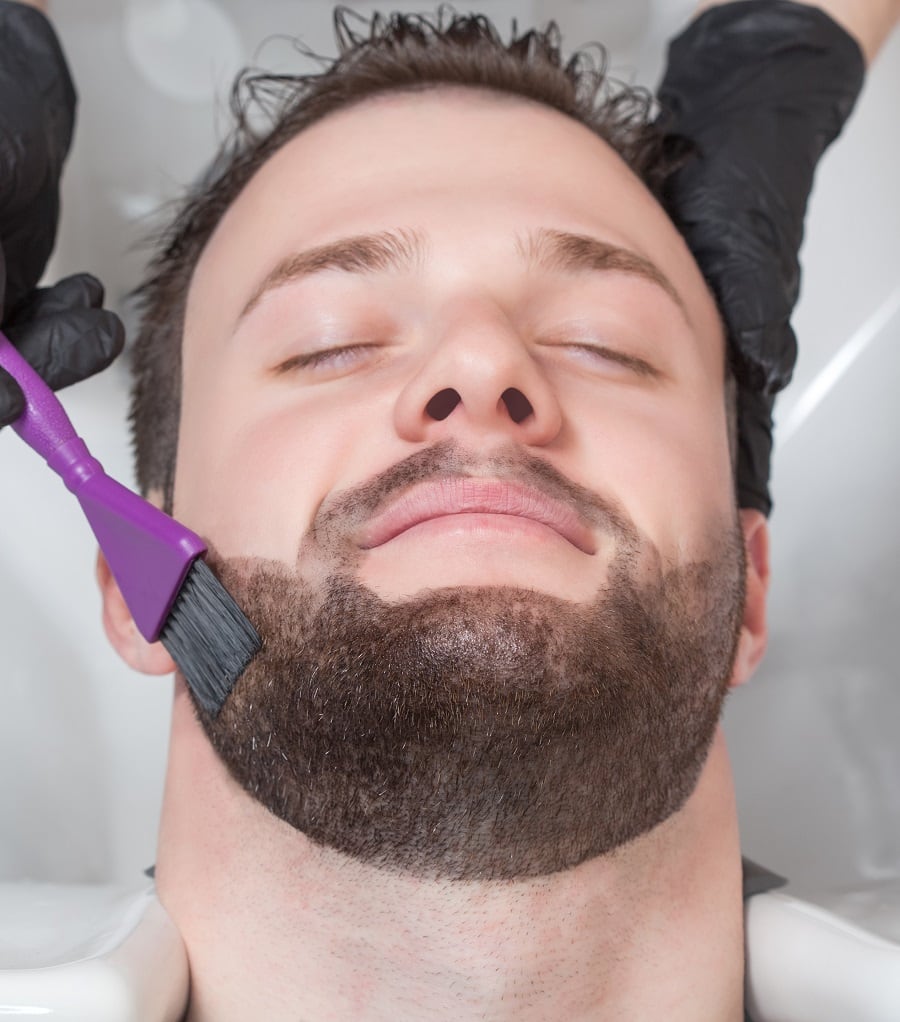
- Beard Dyes: Commercial beard dyes are widely available and provide a quick solution for darkening your beard. They come in various shades to match your desired color.
- Temporary Color Sprays: These sprays offer an easy way to darken your beard for a short period, typically lasting until your next wash. They allow you to experiment with different shades without committing to a permanent change.
- Hair Mascara: Hair mascara can be used to darken your beard temporarily, offering precise control over the areas you want to color. It’s easy to apply and washes out with shampoo.
- Beard Pencils: Beard pencils allow you to fill in and darken sparse areas of your beard with precision. They offer a temporary solution and can be easily washed off with water or makeup remover.
Natural Vs Non-Natural Method
Natural methods of darkening your beard involve using organic ingredients, such as coffee, tea, henna, and herbal infusions. These methods are known for their gentleness on hair and skin, as well as their environmentally-friendly nature.
Pros:
- Lower risk of irritation or allergic reactions
- Less likely to damage hair or cause dryness
- Natural ingredients have a smaller ecological footprint
Cons:
- Natural methods typically take longer to show noticeable results
- It can be difficult to achieve a specific shade or even coverage
- Natural methods may not offer as many color options
- Natural dyes may fade faster, requiring reapplication
Non-natural methods involve using commercial products such as beard dyes, temporary color sprays, hair mascara, and beard pencils. These methods provide quick results, a wide range of color options, and longer-lasting effects.
Pros:
- Non-natural methods offer quick, noticeable results
- Ability to achieve a specific shade and even coverage
- Non-natural methods provide more color options
- Commercial dyes and products tend to last longer between applications
Cons:
- Risk of irritation or allergic reactions due to harsh ingredients
- Non-natural methods may weaken or dry out hair
- Synthetic ingredients may have a larger ecological footprint
- Non-natural methods often require more upkeep and touch-ups
So there you have it. If you’re looking to darken your beard, give these methods a try – you might just find your own beard magic!
Recommended For You:
How to Dye Your Beard Properly
Should You Dye Your Beard? Pros and Cons
Frequently Asked Questions
1. Can I use multiple methods to darken my beard?
Yes, you can combine different natural methods to achieve the desired beard color. However, it is important to test each method separately first to ensure you do not experience any adverse reactions.
2. How long will it take to see results?
The time it takes to see results will vary depending on the method used and the consistency of the application. Generally, you can expect to see noticeable changes within a few weeks of consistent use.
3. Are these natural methods safe for all skin types?
Natural methods are generally safe for most skin types. However, it is always best to conduct a patch test before applying any new substance to your skin or beard. If you experience irritation or an allergic reaction, discontinue use immediately.
4. Will these methods also help with beard growth?
Some of the methods, such as maintaining a healthy diet can promote healthier beard growth. However, the primary focus of these methods is to darken your beard rather than stimulate growth.
5. Can I use these methods to darken mustaches?
Yes, these natural methods can also be used to darken other hair, such as mustache, eyebrows, and scalp hair too.



